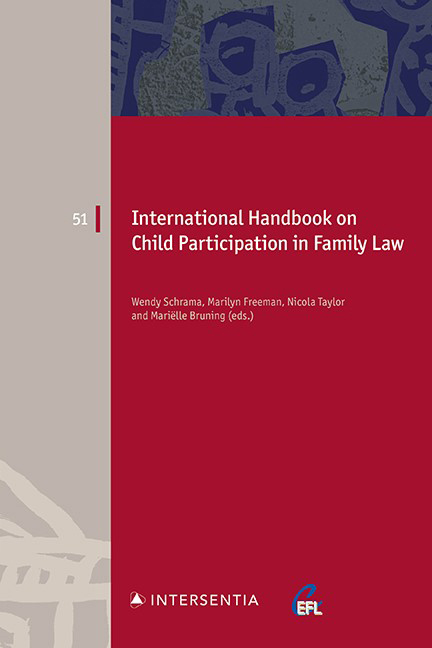Book contents
South Africa
Published online by Cambridge University Press: 10 December 2021
Summary
INTRODUCTION
South Africa was characterised by formal apartheid (separation of races), which was enforced until 1994. This has deeply affected various aspects still associated with the family law system, including the court system, laws regulating marriage and divorce, and the societal organisation of family life. The fault lines of the past are in many respects reproduced today, 25 years after the formal ending of institutionalised racial segregation.
With a population touching 58 million people (and an unknown number of undocumented migrants), detailed information about family make-up and the incidence of divorce in South Africa has only recently become available. Data on registered marriages is held by the Department of Home Affairs. Registered marriages include civil marriages, customary marriages, and civil unions. In a report released in February 2019, a total of 135,458 civil marriages, 2,588 customary marriages and 1,357 civil unions were registered in 2017. In comparison with 2016 data, registration of civil marriages and customary marriages dropped by 2.9% and 34.9% respectively, whereas that of civil unions increased by 0.3%.
Information on divorces is derived from data held by the Department of Justice. In 2017, 25,390 completed divorce forms were processed, indicating an increase of 0.3% from the 25,326 processed in 2016. More plaintiffs were female (12,938, 51.0%) than male (8,878, 35.0%). The median ages at divorce in 2017 were 44 years for men and 40 years for women. Four in 10 divorces, 11,330 (44.6%) of the 25,390 in 2017, occurred in marriages that did not reach their tenth wedding anniversary. In 2017, there were 14,121 (55.6%) divorces with children aged less than 18 years affected – 44.5% of divorces were from the African population group, 23.6% from the white population, 17.5% from the coloured (mixed-race) population group, and 5.51% from the Asian group. In up to 80% of all family law disputes, one or more of the parties is unrepresented, and approximately only 6% of cases go to trial. The majority of divorces (55.6%) involve children younger than 18 years.
Part of the legacy of apartheid includes the extremely high number of children born out of wedlock, approximating 58% of all births in the country. In addition, partly reflective of the legacy of the migrant labour system of apartheid, only 34.9% of children lived with both biological parents in 2017 (with 21% living with neither biological parent, but often growing up in what are called skip-generation families, where the grandparents raise children either as a consequence of HIV/Aids or due to labour migration of working adults).
- Type
- Chapter
- Information
- International Handbook on Child Participation in Family Law , pp. 303 - 316Publisher: IntersentiaPrint publication year: 2021

